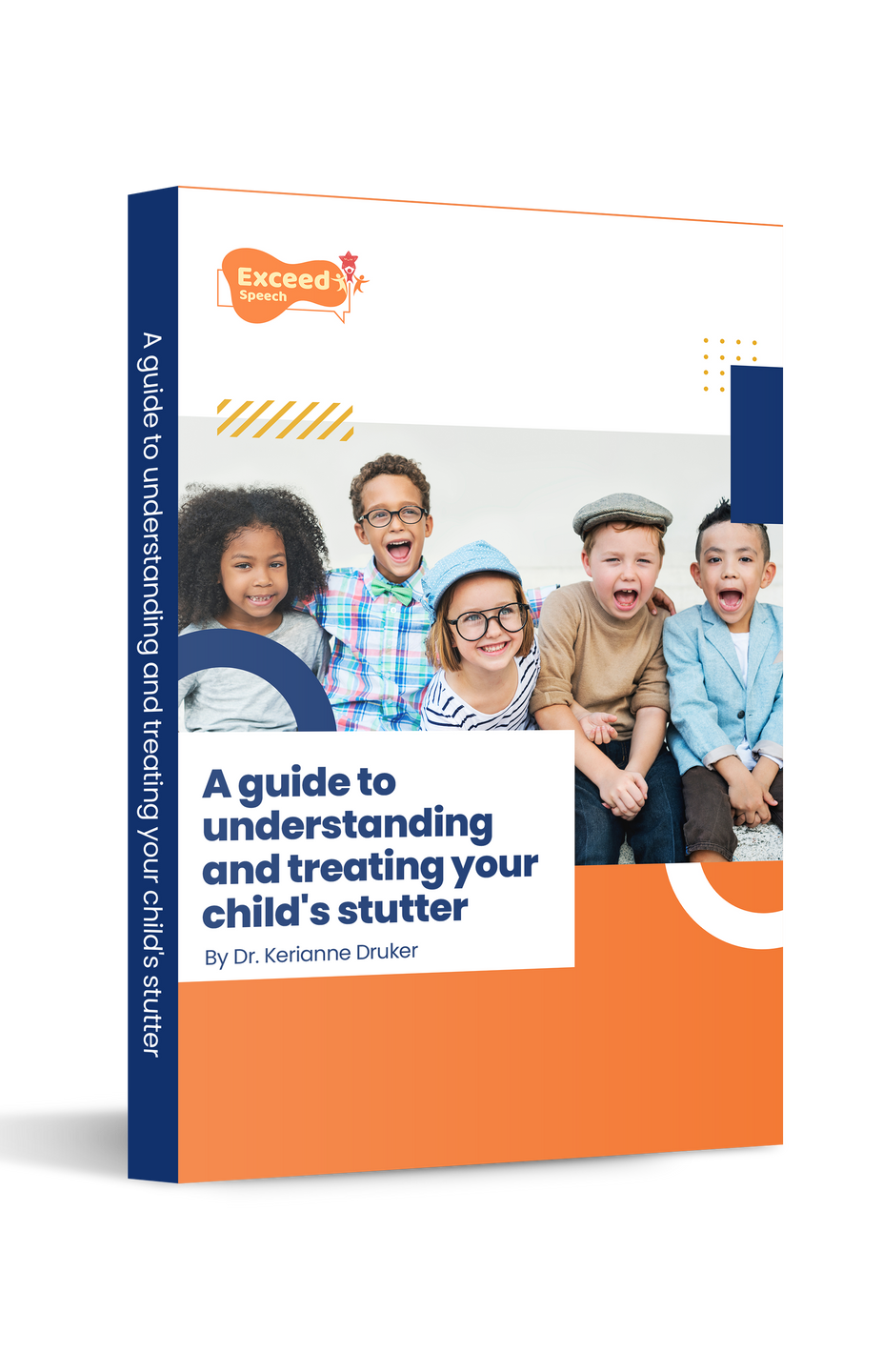Robust Theme
Dec 09, 2019 2020-04-08 7:40Robust Theme
Is it ever too late to get help for my child's stutter?

What is stuttering?
Stuttering is a speech disorder that causes disruption to the flow of fluent speech. People who stutter know exactly what they want to say, but get stuck getting their words out.
Stuttering can result in sound or word repetitions (e.g., c-c-c-can; I-I-I), prolongation or lengthening of sounds (e.g., leeeets go home now), or in more severe cases – blocks – whereby the child or person who stutters experiences a complete stoppage in their speech. Stuttering can also co-occur with secondary behaviours which is what happens when a stutter becomes so uncomfortable that a person starts to use other parts of their body to help ease the pressure on their speech system (e.g., eye blinking, aversion of eye contact, fist clenching, or hand movements).
When is the ideal to get help for stuttering?
The current best practice recommendation according to extensive updated research and Speech Pathology Australia, is to get help for stuttering as close to when is starts as possible. This is because we do not have enough evidence to predict which children may recover from stuttering naturally, and the long-term impacts of living with a persistent stuttering disorder are significant in emotional, social and occupational aspects of life.
When a child starts to stutter, there is a critical window of time where treatment is found to be very successful in fully overcoming this disorder. Unfortunately, after 12 months of having a stutter, the chance of overcoming a stuttering problem reduces significantly. This is because of the neuroplasticity theory – which ultimately highlights that the more a child is left to “practise” this way of talking, the “better” they get at it. This means that the stuttering pathways in the brain get stronger, making them harder to eradicate and overcome.
Is it too late to get help for stuttering?
Despite the fact that stuttering is most successfully treated as close to when it starts as possible – typically at preschool age - it is actually NEVER TOO LATE to get help for stuttering. School-age children, adolescents, or even adults who have stuttered for long periods of time can still fully overcome this disorder… and if they don’t, there are many other aspects of stuttering that can be supported with successful treatment.
What does stuttering treatment look like for older children?
By the time a child or adolescent has lived with stuttering for several years, the impacts of stuttering on their daily life are likely to be significant. Children who stutter often report a reduction in class participation and social engagements, due to fear of stuttering or bullying related to their stuttering.
Therefore, treatment for older children who stutter involves developing a toolkit of effective strategies to facilitate fluent talking (i.e., speaking without stuttering), by making slight changes to the way the child speaks – arming them with the confidence and control that they can speak fluently when they choose to.
Treatment at these later ages also considers the underlying factors that may impact a stutter and all the hidden features of their stuttering that may not be observable to others. Many children and adolescents who stutter carry emotions relating to their stutter, and often expend a lot of extra effort in their conversations to either avoid their stuttering, or find ways to skip words that they know they find difficult. Treatment therefore addresses all of these underlying aspects of stuttering, with the main overarching focus on giving these young people tools to improve their fluency as well as build confidence and control around their communication ability. Treatment also simulates real life talking scenarios, like debating or job interviewing, to foster communication confidence in these possibly challenging situations.
What are the next steps to help my child with their stutter?
Hopefully it is clear that it really is never too late to start stuttering treatment. Whether it is aiming to fully overcome stuttering in the preschool years, or learning strategies and tools to support fluent talking and build confidence in the older years, treatment is effective and easy to embed into daily life.
Book your free 10 minute consultation to speak to PhD qualified stuttering specialist, Dr Kerianne Druker, to find out what can be done to support your child or adolescent’s stuttering.

Free eBook
A guide to understanding and treating your child’s stutter
Take a sneak peak of what the Stuttering Toolkit has to offer, and learn about the treatment principles that have proven successful for more than 90% of children who stutter.
Get Free eBook

